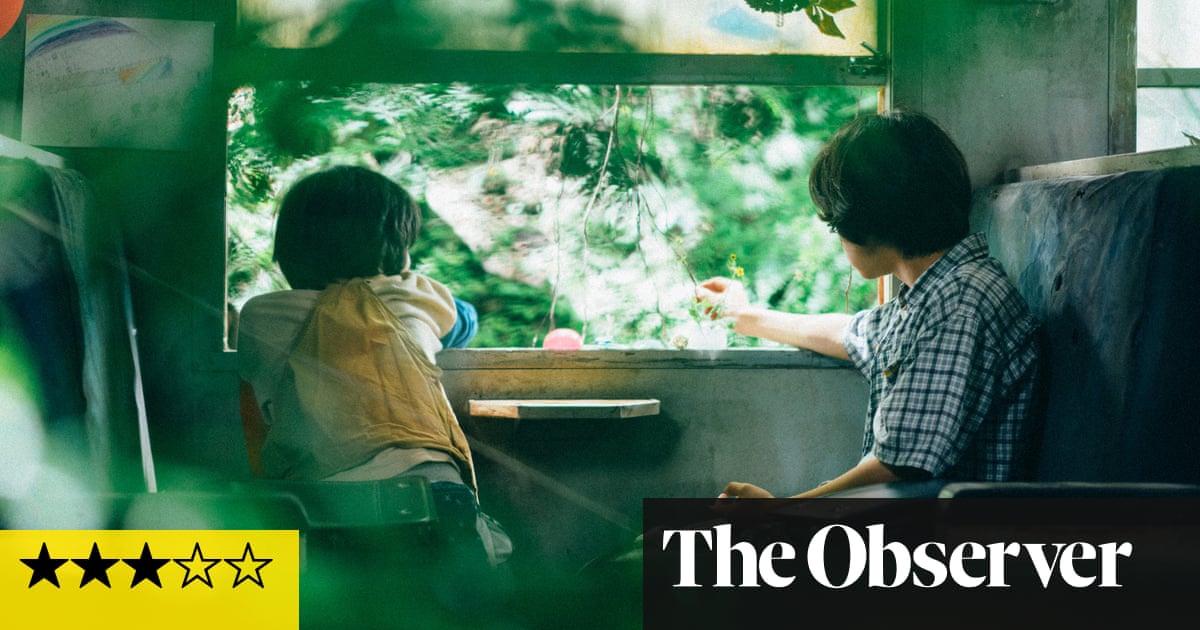AND Distraught widowed mother Saori (Sakura Andô) suspects that all is not well with her teenage son Minato (Soya Kurokawa). The boy appears depressed and withdrawn; catches him hacking at hair a few inches away from his head of hair. It asks strange, disturbing questions: if a pig's brain were transplanted into a human, what would the resulting creature be – a human or a pig? Or some monster? In addition, there is trauma – the ear has been pulled so brutally that it is bleeding; angry bruise on face. Saori quickly deduces that her son's new teacher, Michitoshi Hori (Eita Nagayama) at his provincial Japanese elementary school is responsible for her son's nagging anxiety. She confronts the school's principal (an embarrassing performance by veteran actor Yūko Tanaka), but is frustrated by the school's response: a suffocating set of meaningless apologies intended to quell her complaints. Saori is understandably furious: after all, her son is the victim of a cruel teacher.
Or maybe there is? Hirokazu Kore-eda's latest film (Shoplifters), and the first since 1995 Maborosi which he also did not write or co-write (the script was written by Yūji Sakamoto), he goes back to the beginning of the story – the burning building is a landmark – and recreates key scenes, completing the story, this time from the perspective of a well-meaning teacher. Hori feels, perhaps rightly so, that the school authorities are throwing him to the wolves (“What actually happened doesn't matter,” says the terrifyingly dispassionate principal). His view of class dynamics is that Minato is a bully who systematically attacks the smaller, weirder child, Yori (Hinata Hiiragi), the social outcast in his class.
But then we go back once more and the story unfolds from the point of view of the two boys, showing a new, fragile development of an uncertain friendship and the beginning of an understanding of deeper feelings for each other. The kind of feelings that Yori's drunk and boorish father already suspects in his sensitive son and is ready to beat the crap out of him.
It's hard to do this without feeling dishonest. This construction – the so-called Rashomon the technique of offering different perspectives on a single story, with each new point of view subtly changing the viewer's point of view – is inherently manipulative. This only works if we, the audience, accept that the filmmaker is deliberately misleading us through selective omissions and unreliable witness testimony; when we consent to be deceived and then led towards some truth and solution.
Monster this is an interesting case. Aided by the late Ryuichi Sakamoto's delicate, crystalline score, Kore-eda deftly guides us through the shifting perspectives of history with the ease that comes from extensive practice – the director of films such as Broker AND Our little sister after all, he is no stranger to elegantly conducted emotional manipulation. There are a few too many red herrings and a few nagging questions. Why, for example, if the teacher suspected that Minato was bullying Yori, did he somehow fail to notice the campaign of terror being waged by the other little bastards in the classroom?
But when it comes to the payoff, that satisfying resolution that brings everything together, we are faced with not one but two starkly contrasting readings of the ultimate “truth” at the end, one optimistic about a new beginning, the other concerning the deaths of several characters. After the first viewing, I definitely veered towards the grim option. Rewatching opened up the possibility that the more hopeful ones were the right ones. For what it's worth, Koreeda said after the film's Cannes premiere that the cast and crew favored a positive reading of the events, but conceded that the tragic interpretation was just as valid.
Does it matter that there is so much ambiguity surrounding the film's ending? Perhaps not as much as you might expect, although the feeling is there Monster he pulls punches throughout, refraining from making a bold statement. A key example is the decision to focus on relationships between teenagers rather than older children – the film alludes to issues of sexuality, but neatly avoids actual sex. Ultimately, the question of what actually happened is just another mistake. The real message of the film is its honest, if somewhat cliched message: that it is the wider world that must adapt and accept the differences between children like Minato and Yori, not the other way around.
